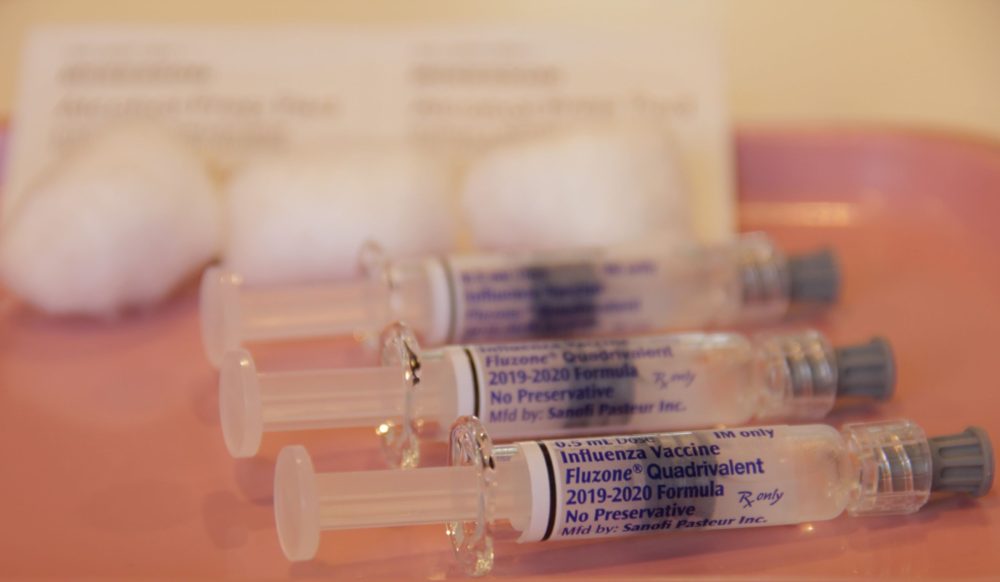By Katy Nguyen, Staff Writer and Karen Phan, Opinion Editor

By Katy Nguyen, Staff Writer and Karen Phan, Opinion Editor
October is here, and so is the flu season.
“The flu is an influenza virus that causes respiratory diseases and is transmitted by droplets,” Nurse Marci McLean-Crawford (Nurse Marci) said. “So if you cough or you sneeze or even when you talk, you let out little tiny droplets. When anyone around you inhales, it gets in their mucus membrane, or [you] pick it up from a surface. That’s how you end up getting the flu.”
Symptoms of the flu include a fever of 100.4 degrees Fahrenheit or higher, dry cough, body aches, fatigue, nausea and vomiting, according to Nurse Marci . The flu could lead to death if not treated.
The Center for Disease Control and Prevention (CDC) reported that the 2017-2018 flu season killed about 80,000 people in the United States. This has been the highest reported death in three decades. Officials fear that this year’s numbers may reach even higher.
Two deaths have been reported in San Diego county since Oct. 2 and the San Diego County Health and Human Services officials confirmed that flu cases has more than doubled since the 2017-2018 season.
Health officials recommend the seasonal flu shot for everyone over the age of six months old. It takes about two weeks to develop immunity once you get the flu shot. For those over the age of 65, there are high-dose vaccines like Fluzone.
“The flu shot does not keep you from getting the flu; it helps reduce the severity if you get sick,” Nurse Marci said. “If you get the flu you could be down and out for two weeks or more. With the flu shots, you have some defenses to fight it and may only be out three to four days.”
The seasonal flu vaccine composition is updated each year by the World Health Organization based on surveillance data that indicates where, when and which virus strains are circulating and if they are likely to be active during flu season.
“This year, all four strains of the flu shot are grown in animal cells, which is a big deal because in previous years, they were all grown in hen eggs,” Nurse Marci said.
According to the CDC, cell culture technology is more reliable and flexible than the egg-based manufacturing process. Egg-grown vaccines can cause the body to produce antibodies that are not effective in combating recent flu strains due to small protein changes in the vaccine. The Food and Drug Administration approved the cell-based vaccine candidates because the viruses will “[eliminate] the kinds of egg adaptations that occur in egg-manufactured flu vaccines,” thus making the flu shot more effective.
“It’s good to get [the flu shot] every year because those strains change every year. It’s not the same one,” Nurse Marci said.
Nurse Marci recommends staying home until you are fully recovered from the flu, as well as washing your hands and keeping them away from your mouth, eyes and nose to prevent getting sick. School policy also states that students with fevers of over 100 must stay home until they are fever-free for 24 hours.
“Don’t try to push yourself through it, because then you’re just going to get more people sick. Your teachers don’t want to get sick, your friends don’t want to get sick. It’s going to cause more stress on your body and you’re going to get sick longer,” Nurse Marci said.
You can get the flu vaccine at your doctor’s office or at pharmacies including CVS, Walgreens and Rite Aid.





